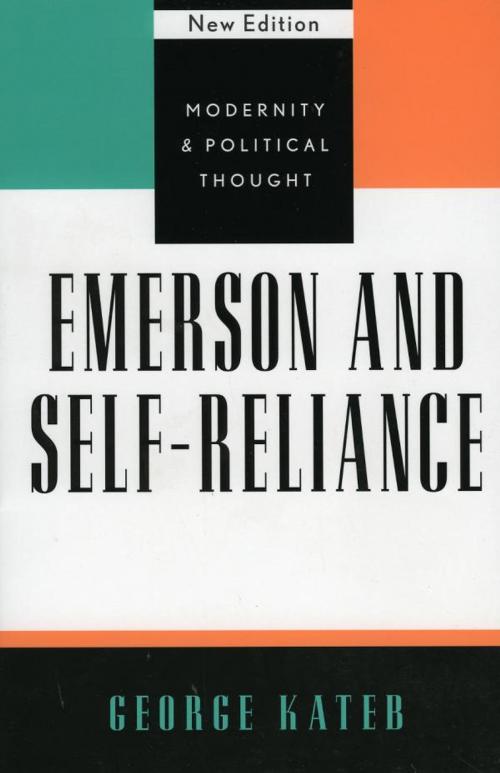| Author: | George Kateb, Princeton University | ISBN: | 9780742578081 |
| Publisher: | Rowman & Littlefield Publishers | Publication: | April 9, 2002 |
| Imprint: | Rowman & Littlefield Publishers | Language: | English |
| Author: | George Kateb, Princeton University |
| ISBN: | 9780742578081 |
| Publisher: | Rowman & Littlefield Publishers |
| Publication: | April 9, 2002 |
| Imprint: | Rowman & Littlefield Publishers |
| Language: | English |
Ralph Waldo Emerson was a great moral philosopher. One of his principle contributions is the theory of self-reliance, a view of democratic individuality. During much of his life, Emerson was considered a radical thinker, and his opposition to established religious opinion was scandalous. Emerson's deep commitment to individualism was at the root of his critique, and his articulation of individualism was constant, whether aimed against the group mind or against institutional constrictions. 'Nietzsche was Emerson's best reader,' and George Kateb provides an accessible reading of Emerson that is friendly to the interests of Nietzsche and to later Nietzscheans such as Weber, Heidegger, Arendt, and Foucault.
Ralph Waldo Emerson was a great moral philosopher. One of his principle contributions is the theory of self-reliance, a view of democratic individuality. During much of his life, Emerson was considered a radical thinker, and his opposition to established religious opinion was scandalous. Emerson's deep commitment to individualism was at the root of his critique, and his articulation of individualism was constant, whether aimed against the group mind or against institutional constrictions. 'Nietzsche was Emerson's best reader,' and George Kateb provides an accessible reading of Emerson that is friendly to the interests of Nietzsche and to later Nietzscheans such as Weber, Heidegger, Arendt, and Foucault.















